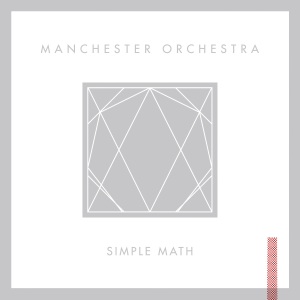jason stives talks with Chris Freeman, keyboardist and percussionist of the indie rock stars …

Manchester Orchestra garnered another banner year in their brief history. After the critical acclaim of their 2009 sophomore album Means Everything To Nothing, the band pulled together a collection of songs that either by fate or accident turned into a concept album. Simple Math, the band’s third release, is a personal story told under the complacent narration of lead singer Andy Hull. The album debuted to high praises and scored them a No. 21 position of the Billboard 200 charts in May.
After touring consistently for seven months, the band recently wrapped a lengthy trek in support of Simple Math and is looking towards the future but not too quickly. Pop-Break’s Jason Stives proposed a series of daunting questions to Manchester keyboardist Chris Freeman, discussing the completion of this round of touring and what the next year holds for the Atlanta quintet.
Pop-Break: A song is in terms a concept by default, but then an album can be a concept album as well. At what stage in the album process does it go from being songs with different subjects to a linking idea like Simple Math was?
Chris Freeman: Simple Math came together as a concept album just by the nature of the lyrical content and the songs that seemed to fit well together musically to create the album as a whole. I believe it to be a “concept record” by its consistent subject matter rather than by some sort of linear story line like most concept albums. We had a ton of songs for Simple Math — these just seemed to fit well together.
PB: It’s kind of funny how some of the subject matter that Simple Math covers, mainly religion, would have probably been cause for expulsion from a label years ago, but now it’s too much of a social discussion to ignore. When certain ideas are discussed in your music, does it ever cross your mind of how that will be interpreted?
CF: Lyrics are always up for interpretation, so it’s just sort of expected and then ignored. It’s always interesting hearing other people’s interpretations of songs, but they’re sometimes off. A guy once said to me, “‘Shake It Out’ is about drinking a ton of beer, right?” It was so far-fetched that I just said, “Yeah man, definitely.”
PB: The one thing I have always admired about the group’s songwriting style is there is always an underlying hint of humor and sarcasm. You release an album like Means Everything To Nothing and pick up steam on mainstream rock radio, and the label takes note of it. But then you release a more conceptual album like Simple Math that your fans really take to. At what point is there the factor of what the fans would like to hear and what the label is going to want?
CF: Our band just tries to make the best thing we can at each go-around. Our label has always been very supportive of our visions for each record and trusts us wholly on what we’re trying to make. And I think our fans tend to treat us the same way. So we just do what we do and hope that people still like us.
PB: Performing live after three albums do certain songs have a greater prominence in your setlist? Like do newer songs like “Virgin” or “April Fool” seem more important to play during your shows than say older songs like “Wolves At Night?”
CF: Of course. There’s a sense of excitement when you get to play new material to an audience, especially once the record has been out for a few months and people are starting to sing along. Having people go ape-shit over older songs that the majority of our fans already know is fun, too.

PB: I know you guys have said that after this tour, you’ll time off to do side projects, but normally when does that period start to set in after months of touring when you decide, “Okay, we have exhausted ourselves of promoting this album, let’s start thinking about the next”?
CF: I think that moment comes when you look up and realize that you’ve been gone for almost an entire year. I believe that the “winds of change” are very evident in this band. We’re usually all on the same wave-length when it comes to moving forward. Plus, we really like being in the studio. So when we get a chance to get off the road and go create something new, we’re usually pretty ready to do just that. This past headlining tour felt like a great way to end the year and the extensive traveling we’ve done for Simple Math. It’s nice to not feel the pressure of jumping right back into the studio for Manchester. We were supposed to take some time off after that Thrice tour was cut short. Instead, we made Simple Math and haven’t really stopped moving until now.
PB: Your collaboration with Kevin Devine, Bad Books, received some great reviews last year. Are there plans to record a follow up? Also, what is it like working with another songwriter in the room?
CF: Working with Kevin is always something that our entire band looks forward to. We’re definitely going to be working on a new Bad Books record at the beginning of 2012. Having another songwriter in the room is interesting because everybody’s brains work so differently. It’s fun seeing the way Kevin works and the way that he views his songs and all of the different neurotic thoughts that come with that. I think that being in the studio is a very vulnerable place, but Kevin wears it well.




Comments are closed.